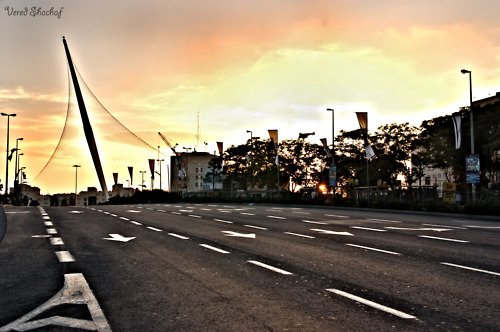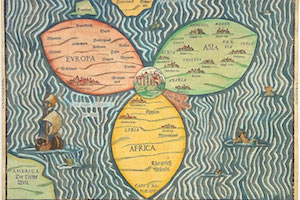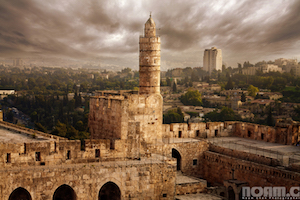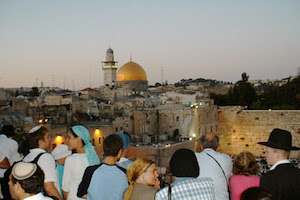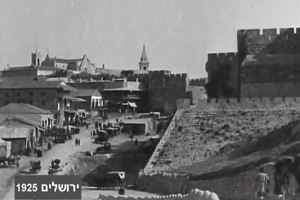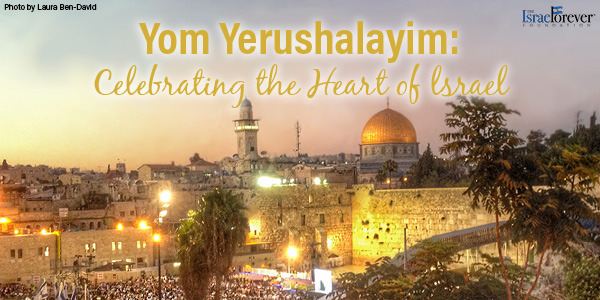Five Poems for Jerusalem
By Yehuda Amichai
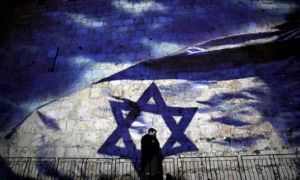
Copyright © Michal Fattal, EPA
JERUSALEM IS A PORT CITY
Jerusalem is a port city on the shore of eternity.
The Temple Mount is a great ship, a pleasure yawl
In splendor.
From the portholes of her Wailing Wall, jubilant saints
Peer like passengers. Hasidim on the pier wave
Goodbye, yelling hurrah, bon voyage. She
Is always docking, always embarking.
And the fences and docks
And policemen and flags and churches' high masts
And the mosques and the smokestacks of synagogues and the chanteys
Of praise and mountain-billows.
The ram's horn sounds out sunset: one more
Has set sail.
Yom Kippur sailors in white uniforms
Ascend between the ropes and ladders of tried-and-true prayers.
And the profits of market and gates and goldencap domes:
Jerusalem is the Venice of God.
JERUSALEM IS A SPINNING CAROUSEL
Jerusalem is a carousel spinning round and round
from the Old City through every neighborhood and back to the Old.
And you can’t get off. If you jump you’re risking your life
and if you step off when it stops you must pay again
to get back on for more turns that never will end.
Instead of painted elephants and horses to ride
religions go up, down and around on their axes
to unctuous melodies from the houses of prayer.
Jerusalem is a seesaw: Sometimes I go down,
to past generations and sometimes up, into the sky,
then like a child dangling on high, legs swinging, I cry
I want to get down, Daddy, Daddy, I want to get down,
Daddy, get me down.
And like that, all the saints go up into the sky.
They’re like children screaming, Daddy, I want to stay high,
Daddy don’t bring me down, Our Father Our King,
leave me on high, Our Father Our King!
TOURISTS
Visits of condolence is all we get from them.
They squat at the Holocaust Memorial,
They put on grave faces at the Wailing Wall
And they laugh behind the heavy curtains
In their hotels.
They have their pictures taken
Together with our famous dead
At Rachel’s Tomb and Herzl’s Tomb
And on the top of Ammunition Hill.
They weep over our sweet boys
And lust over our tough girls
And hang up their underwear
To dry quickly
In cool, blue bathrooms.
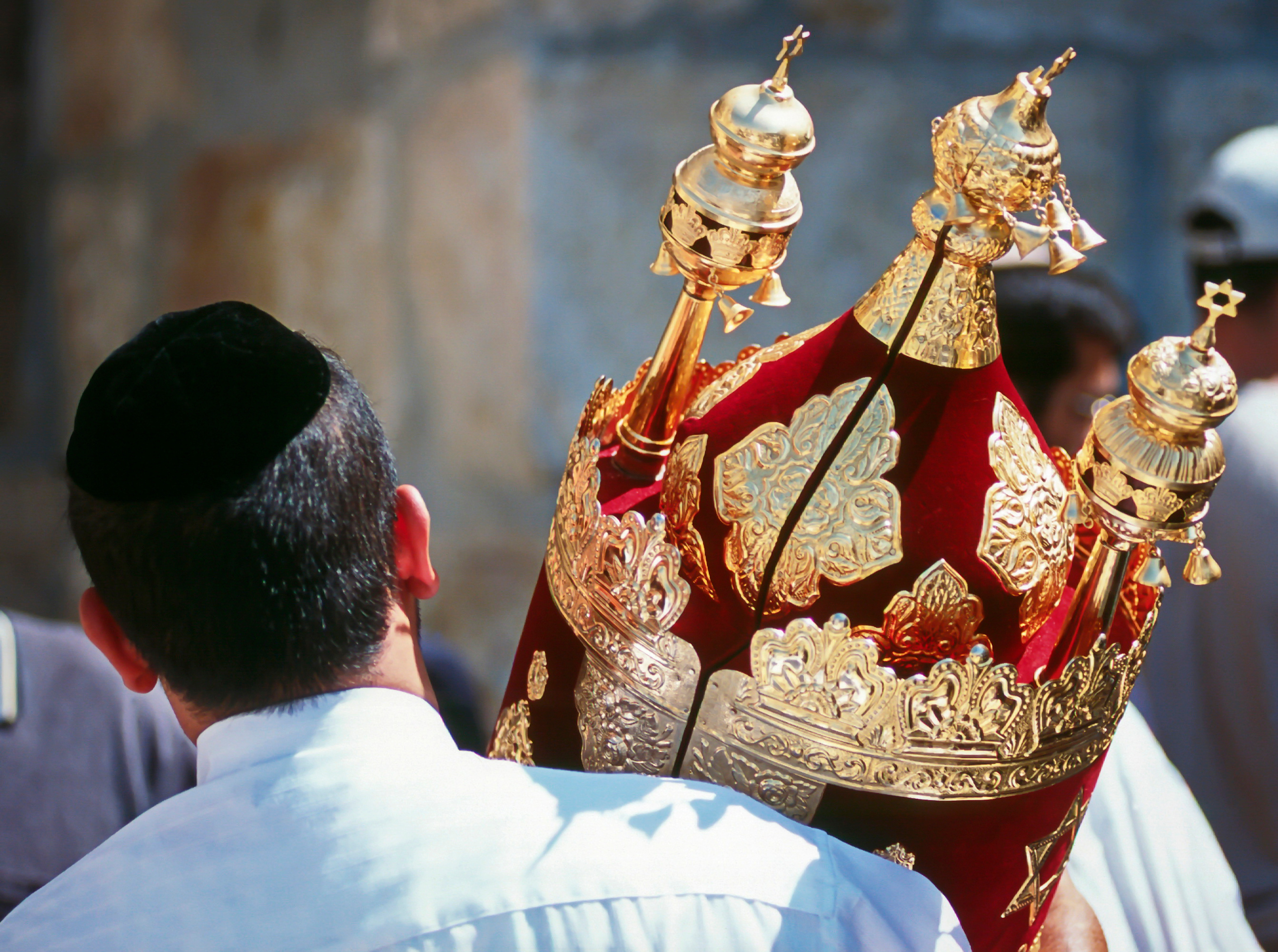
Once I sat on the steps by a gate at David’s Tower. I placed my two heavy baskets at my side.
A group of tourists was standing around their guide and I became their target marker.
“You see that man with the baskets? Just right of his head there’s an arch from the Roman period. Just right of his head.”
“But he’s moving, he’s moving!”
I said to myself: “redemption will come only if their guide tells them, ‘You see that arch from the Roman period? It’s not important: but next to it, left down and a bit, there sits a man who’s bought fruit and vegetables for his family.’”
VIEW OF JERUSALEM
On a roof in the Old City
laundry hanging in the late afternoon sunlight
the white sheet of a woman who is my enemy,
the towel of a man who is my enemy,
to wipe off the sweat of his brow.
In the sky of the Old City
a kite
At the other end of the string,
a child
I can’t see
because of the wall.
We have put up many flags,
they have put up many flags.
To make us think that they’re happy
To make them think that we’re happy.
"Jerusalem-the only city in the world, where the right to vote is granted even to the dead."
AN ARAB SHEPHERD IS SEARCHING FOR HIS GOAT ON MOUNT ZION
An Arab shepherd is searching for his goat on Mount Zion
And on the opposite hill I am searching for my little boy.
An Arab shepherd and a Jewish father
Both in their temporary failure.
Our two voices met above
The Sultan's Pool in the valley between us.
Neither of us wants the boy or the goat
To get caught in the wheels
Of the "Had Gadya" machine.
Afterward we found them among the bushes,
And our voices came back inside us
Laughing and crying.
Searching for a goat or for a child has always been
The beginning of a new religion in these mountains.
Translated by Chana Bloch.
RECOMMENDED: The Tolerant Irony of Israel’s National Poet
ECOLOGY OF JERUSALEM
The air over Jerusalem is saturated with prayers
and dreams
like the air over industrial cities.
It’s hard to breathe.
And from time to time a new shipment of history arrives
and the houses and towers are its packing materials.
Later these are discarded and piled up in dumps.
And sometimes candles arrive instead of people
and then it’s quiet.
And sometimes people come instead of candles
and then there’s noise.
And in enclosed gardens heavy with jasmine
foreign consulates,
like wicked brides that have been rejected,
lie in wait for their moment.
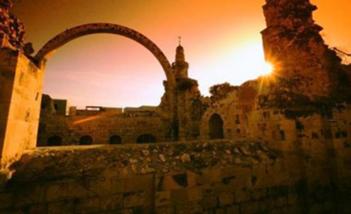
Jerusalem is a see-saw
Sometimes I dip down
into past generations
and sometimes I rise skywards and then
yell like a child yelling, his legs swinging way up
I want to get off, Dad, I want to get off,
Dad, help me off.
And that's how all the holy men ascend to heaven
like children shouting,
Father I want to stay up here
Father, don't get me down, our Father our King,
Leave us up here, our Father our King!"
RECOMMENDED: New English collection opens the doors to Yehuda Amichai’s unforgettable poetry
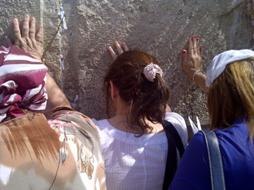
If I forget thee, Jerusalem,
Let my blood be forgotten.
I shall touch your forehead,
Forget my own,
My voice change
For the second and last time
To the most terrible of voices --
Or silence.
From Poems of Jerusalem by Yehuda Amichai. Tel Aviv: Schocken Publishing, 1987.
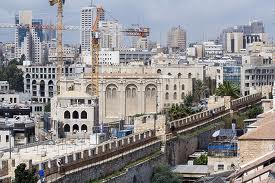
Copyright © Brian Negin
Yehuda Amichai has been Israel's best-known poet and the most widely translated. He was born in Wurzburg, Germany, in 1924, and immigrated with his family to Palestine in 1936. Although his upbringing was religious, upon reaching maturity Amichai became secular. In the university he studied Biblical texts and Hebrew literature. W.H. Auden and Dylan Thomas influenced Amichai poems. Sketching from various strata of language - from Biblical, Talmudic and classical to post-modern Hebrew - Amichai was a magician of words. Much of his work is autobiographical. "My personal history has coincided with a larger history," he said. "For me it's always been one and the same." Ted Hughes made Amichai's work known to English and American readers. His poetry has been translated into 33 languages and his readings draw large crowds in Germany (German was his native language) and all over the United States. In many of his poems that are addressed to Jerusalem, Amichai express his deep love to the city, its history and commoners, while showing disgust and repulsion toward its politicians and agitators.

